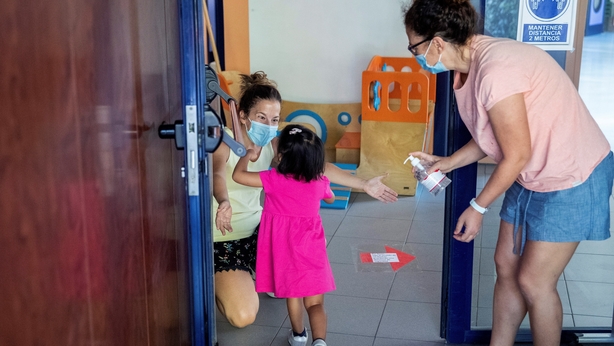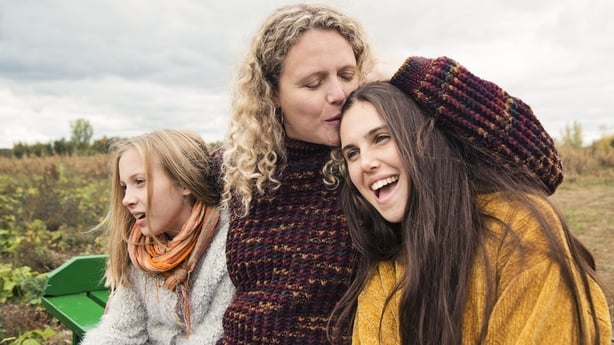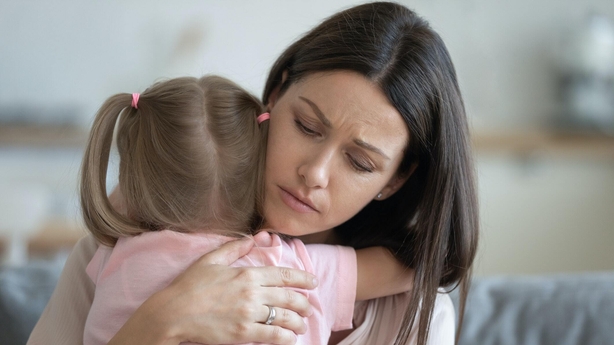Clinical Psychologist David Coleman shares his advice on how to help children and teenagers adjust to the 'next normal': the changes, the losses and the uncertainty.
The last few months have been hard. Every family in Ireland has had to adjust to the restrictions and changes that Covid-19 have brought into our lives.
Children and teenagers have lost time in school, lost time with friends, lost time with grandparents, lost time with sports, while perhaps experiencing greater anxiety, isolation, frustration and disappointment.
There are no guarantees as to when restrictions will change or end, so, as parents, we have to continue to support them to cope, to remain resilient and to adapt to whatever changed circumstances come their way.
Already, for example, children have adjusted to concepts of bubbles and pods, with regard to whom they spend time with, in school. Older students are adapting to wearing face-coverings for hours of the day, to ensure their education can continue. Both have had to adjust to homeschooling.

Don't try to "fix"
None of us can predict if these changes and adaptations will become permanent, or if we can return to more familiar ways of being and interacting together. This means we can’t "fix" things for children, to make it like it used to be. We can’t offer them guarantees that things will be "better".
Children can learn to cope with change and to remain flexible and adaptable, from their observations of us. This assumes that we are coping with the changes and that we are modelling resilence and adaptability. Some of us may feel we are coping well, others of us may not.
But, when we can show acceptance of the need for things to be different, when we can regulate our own frustrations or disappointments, it will give a good lead to our children.

Empathy and understanding
The single biggest support we can offer our children and teenagers, however, is empathy and understanding. It is much easier to be resilient and adaptable, when we feel that we are understood, or that others "get" just how difficult these changes might be, or just how hard we are working to cope with the newness of our current circumstances.
Empathy is, at heart, our ability to put ourselves into our children’s shoes and to see the world as they see the world, understanding the feelings that their perspective might evoke. When we empathise it can allow warmth, compassion and kindness to flow.
When we think what it might be like to be our children, we may see the disappointments they have suffered from cancelled communions, restricted birthday celebrations, missed trips and more. We may see how much they miss being with their friends, having sleepovers, going trick-or-treating, hugging their grandparents and so on.

Reflect back
We can then support them by reflecting back the feelings they may have about the changes they are experiencing. For example, we may say something like, "I think it can be hard being in school and wearing a mask all day." Or, "I'd say it feels sad not getting to go visit your nana and granda." Or "It must have felt so disappointing when they cancelled the semi-final 'cos we went to Level 3." Or "You seem very frustrated that you can’t just go into town to meet your friends."
Empathising, using this kind of language, where we are guessing at how our children and teenagers are feeling, will help them to feel understood. It may also help them to make better sense of the complicated feelings they may have about how we now have to live with Coronavirus and adapt accordingly.

Listen
After listening to our children, and reflecting back the feelings we think they may have, we can be with them, "in it together", so to speak. Over time, if they look for it, we can then help them problem solve, or rationalise, the situations that are causing them distress.
This is the heart of resilience, being able to recognise and regulate our feelings enough that we don’t feel overwhelmed by negativity, such that we can keep a forward-looking, hopeful, and positive approach to difficult times.
It might also help to remember that family is still a critically important part of children’s lives, and so, for example, even though holidays like Halloween, even Christmas, may have to be celebrated differently, for most children the fact that we remain present, available and understanding can help them know that they are okay.
- Written by David Coleman

